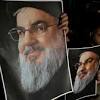An eventful year has gone by


At the fag end of the year, it can be instructive to revisit and analyse the challenges the world had to face and the devices and instruments it deployed to surmount those. One should similarly reflect on the positives that came out of the year.
It is noteworthy that the United Nations declared 2021 the International Year of Peace and Trust, the International Year of Creative Economy for Sustainable Development, the International Year of Fruits and Vegetables, and the International Year for the Elimination of Child Labour. It is important to underline that such declarations are mere iterations that rarely result in concrete measures.
Let’s have a broad overview of the international affairs before we focus on the national scene. The sharp focus will then be on the situation obtaining in Pakistan and the fallout of international events on its socio-political and economic situation. The tough stance taken by the government vis a vis the United States and its zealous support for the Talban regime call for a dispassionate and informed analysis.
Only time will tell if going the whole hog to the Chinese camp, particularly after saying “absolutely not” to US bases and declining President Biden’s invitation to be part of a seminar of democratic countries was worth Pakistan’s while.
2021 was indeed an eventful year. A lot transpired that is likely to spawn far-reaching consequences. With a new president in the US, the hope of normalisation of US-Iran relations was revived. However, it remained an unfulfilled hope.
The myth of American invincibility was shattered when the Taliban took over Kabul without facing significant resistance. The unceremonious exit of President Ashraf Ghani and his acolytes was the shock of the century for the Western (NATO) allies of the United States. It was a testimony also to Joe Biden’s inadequacy and incompetence as an American president.
In Myanmar, the elected government was sent packing by a military junta without any compunction. The coup d’état cracked another myth about an era of democracy being the only political possibility after the annihilation of the regimes of Saddam Hussein, Col Gaddafi and Hosni Mubarak.
The emergence of China and Russia with their own brand(s) of political systems has the potential to mount a serious challenge to the Western style of democracy. The Singapore experiment is yet another case in point. In fact, with religious right-wing leadership finding traction in many polities, including India, France and Pakistan, classical democracy has a bumpy ride ahead.
The development and economic growth discourse is viewed by many to be quite incongruent with the reigning practices. The ‘inordinate’ stress on human rights as defined by Western powers irks many governments across Asia and Africa, which find them inimical to economic development and poverty alleviation.
Myanmar army’s top brass gave a hoot for Aung San Suu Kyi’s status of a crusader for democracy and human rights. Their excuses for taking over the reins of the government were seen as mere concoctions.
In India, Prime Minister Narendra Modi had to kneel down before protesting farmers, his conjured-up aura of a strong man notwithstanding. The power and authority Modi draws from the RSS and its ideology proved irrelevant in confronting the farmers, most of whom hailed from the Punjab.
One can assert in view of the recent events that the winds of change have heralded a new era in several polities. Whether they can sustain the impact that these changes will engender, or fall apart like Iraq or Libya remains to be seen. Saudi Arabia is one such polities.
Saudi Glasnost was the most unbelievable event of recent history. It commenced with Prince Muhammed bin Salman being catapulted to his position of prominence in governance structure of the kingdom. He was particularly persuaded by then US president, Donald Trump, to tread the path of liberalism as he wanted KSA to draw closer to Israel.
Prince Muhammed seems bent upon opening up the tradition-bound Saudi society and allowing the Western liberalism to cascade in. This has caused quite a bit of furor in the Muslim world. Neon, the new city, is said to be the Los Vegas of the Middle East. This represents a departure from the hundred years of socio-religious ethos that the family of Saud established and consolidated with unequivocal resolve. Prince Muhammed’s zestful overtures to normalise relations with Israel have also ruffled many feathers. How will Muslims of the world react to this radical departure from a well-entrenched religious ethos and tradition in the Islamic heartland?
In Chile, 35-year-old Gabriel Boric, a left-wing candidate and a member of Chile’s Congress, a former organiser of student protests, won the presidential run-off election. The way Chile has conducted itself politically is quite commendable. The election was seen to be free and transparent and the loser, right-wing populist, José Antonio Kast, immediately conceded defeat. He also tweeted that Mr Boric “is the elected president of Chile and deserves all our respect and constructive collaboration.”
Boric got 56 percent of the vote to 44 Kast’s percent. His victory is part of a regional progressive wave that has already brought leftists to power in Mexico and Peru. In addition to addressing economic issues, Boric, who takes office in March, has promised to steer Chile in a more environmentally conscious direction, with more rights guarantees for women and the LGBTQ.
In Peru, leftist candidate Pedro Castillo claimed victory on Tuesday after the final vote count from Peru’s June 6 presidential election, although his rival, right-wing candidate Keiko Fujimori, disputes the outcome. Castillo, a 51-year-old rural schoolteacher, has a lead of more than 44,000 votes, garnering 50.12 percent to Fujimori’s 49.87 percent. “A new era has begun,” Castillo said in a tweet thanking his supporters. “Millions of Peruvians have stood up in defence of their dignity and justice.”
There is a lesson here for us Pakistanis who must also learn to stand up for our dignity and justice. In Honduras, leftist opposition candidate Xiomara Castro claimed victory in presidential election, setting up a showdown with the National Party which said its candidate had won a vote that could end the conservative party’s 12 years in power. “We win! We win!” Castro, Honduras’ former first lady who is making her third presidential run, told cheering Liberty and Re-foundation party supporters. “Today the people have made justice. We have reversed authoritarianism.”
Things had been quite volatile in some of the African states. Sudan was the most conspicuous among them. On October 25, the Sudanese military, led by Gen Abdel Fattah al-Burhan, took control of the government in a military coup. Initially, at least five senior government figures were detained. Prime Minister Abdalla Hamdok refused to lend support to the coup and on October 25 called for popular resistance. On October 26, he was moved to house arrest.
Key civilian groups, including the Sudanese Professionals Association and Forces of Freedom and Change called for civil disobedience and refusal to cooperate with coup leaders. Protests against the coup started on October 25 and at least 10 civilians were reported killed and 140 injured in military action during the first day of protests.
The travails caused by the Covid left hardly anything about the year 2021 worth remembering. Lockdowns, smart or otherwise, squeezed spaces at hospitals, and greater proportion of mortality across national and class divides were the most salient features defining this year. A substantial chunk of national resources was consumed in importing vaccines and ventilators. In relative terms, Imran Khan’s government rose to the occasion. Pakistan did better than the most, even some developed nations like the UK. Italy and Spain failed to cope with the virus and its fallout with any measure of effectiveness.
The NCOC ought to be commended for its monitoring of the afflicted and felicitated over taking the measures necessary to contain the spread of virus. Covid’s international impact in terms of economic hardship has caused price hikes to the consternation of the middle income and poor sections of the society. The IMF and the FATF too have contributed to Pakistan’s economic woes. Introduction of Kissan cards and Sehat cards by the current government can be good initiatives if these can be effectively executed.
Hoarding of essential food items remained a nemesis for the government. Judicial reforms are the need of the times. The introduction of a Single National Curriculum has become controversial.
On April 10, protest demonstrators demanded a boycott of French goods and the expulsion of the French ambassador. The protests intensified across Pakistan after the party’s leader, Saad Hussain Rizvi, was arrested on April 12. There was a series of protests and strikes from April 11 to April 20, orchestrated by a banned far-right party, the Tehreek-i-Labbaik Pakistan (TLP).
The protests ended after the government agreed to discuss the expulsion of the French envoy in the parliament. Yet again the incongruity of religious forces and the nation state became starkly apparent. Some members of the party in power were reported to have threatened to join the TLP. Vigilantism in the name of religion, unfortunately, has become rampant in Pakistan. This is an alarming development.
The outfits seek to monopolise public space and have promoted a religious extremism streak as a result of which a factory manager was tortured to death and burnt. That is a stigma the nation will have to live with for quite some time.
The author is a professor of history and a writer. He can be reached at tahir.kamran@bnu.edu.pk


 New Zealand
New Zealand Argentina
Argentina  Australia
Australia  Austria
Austria  Brazil
Brazil  Canada
Canada  Chile
Chile  Czechia
Czechia  France
France  Germany
Germany  Greece
Greece  Italy
Italy  Mexico
Mexico  Nigeria
Nigeria  Norway
Norway  Poland
Poland  Portugal
Portugal  Sweden
Sweden  Switzerland
Switzerland  United Kingdom
United Kingdom  United States
United States 






































